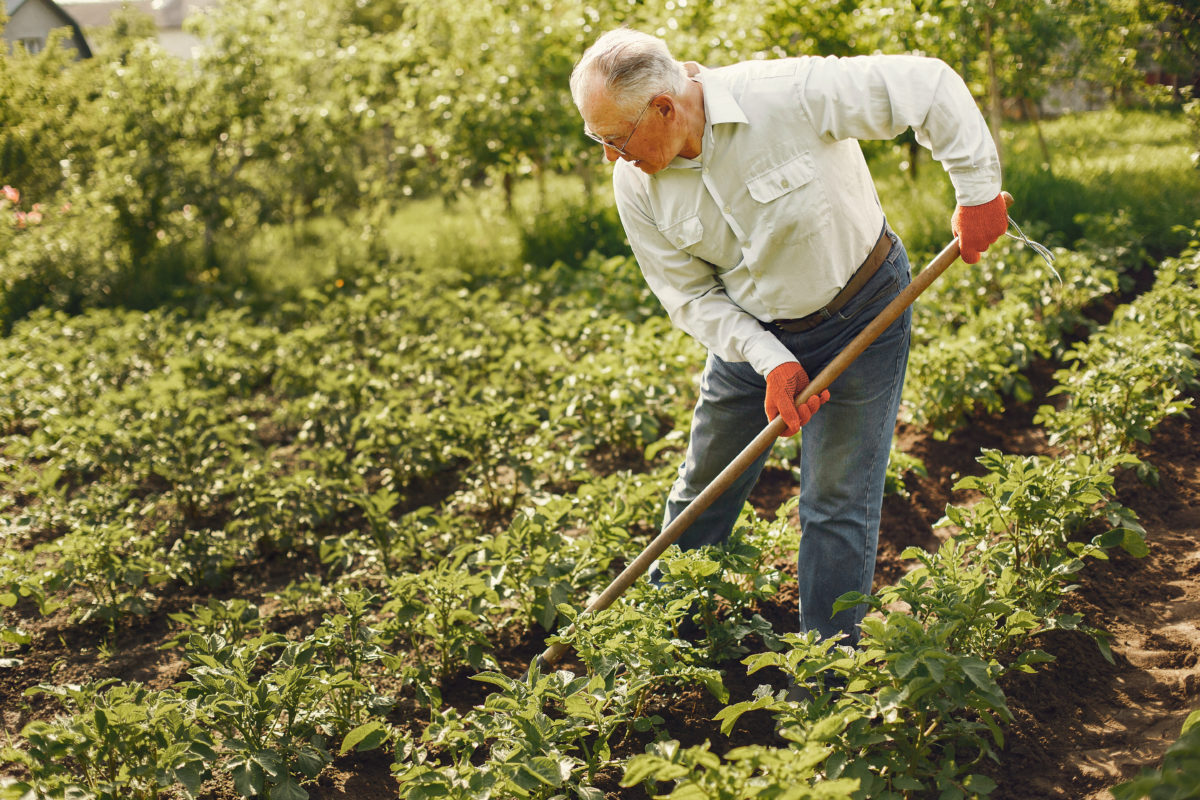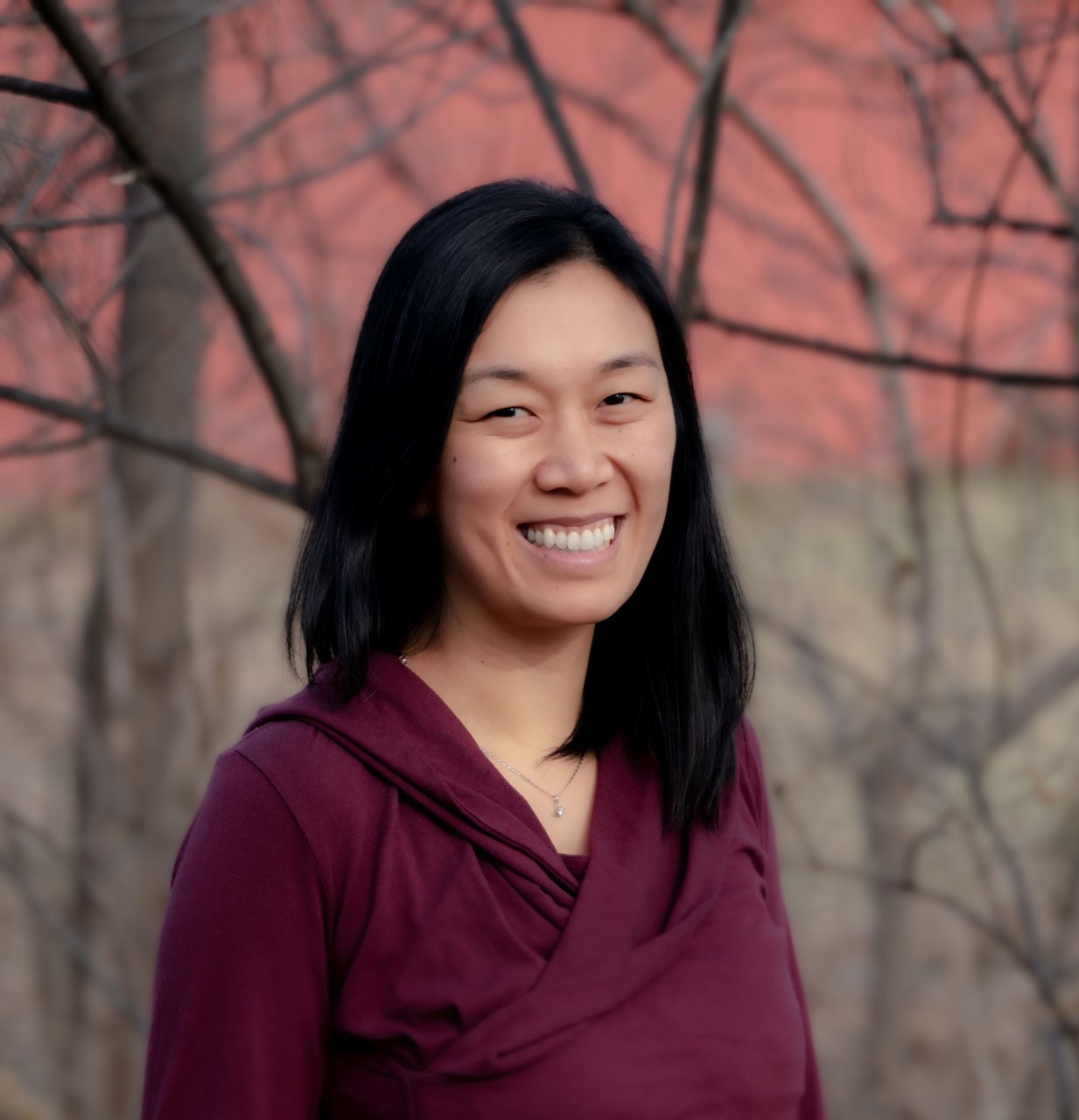
The Au Sable Institute is a Christian environmental education center in Mancelona, Michigan. This post is the third of five excerpts from Au Sable Institute’s 2021 workbook Liturgies of Restoration ¸ a five-week study on how our habits can shape us into people who serve, protect, and restore God’s earth. Additional practices and resources mentioned here may be found in the workbook. Graduate students and emerging scholars can order copies of the workbook and also sign up for a fall online workbook study hosted by Au Sable Institute by clicking here. We thank Liuan Huska and the Au Sable Institute for sharing these resources with the Emerging Scholars Network.
____________________
“The Lord God took the man and put him in the garden of Eden to till it and keep it.”
Genesis 2:15
Recently a prominent Christian political figure noted how “rabid environmentalists” are always the villains in comic books. For example, Marvel’s character Thanos believed that overpopulation was the problem and wanted to wipe out half the universe. “The view of the Left is that people are a disease,” this politician said.[i] Setting aside discussions on comic book interpretation and polarizing political statements, it’s worth examining the commonly held assumptions revealed here.
The assumption is that people and the environment are at odds, that care for “the environment” necessarily means being anti-human. Also assumed is that care for people justifies environmental neglect and destruction. This is a false dichotomy, religion professor Steven Bouma-Prediger points out. “We do not exist over and against something called ‘the environment’ . . . which suggests something we live in but is apart from us.” The word nature, he added, can have similar connotations—as something that excludes humans, who are part of culture.[ii] Bouma-Prediger suggests a better word, ecology, which in Greek means the study (logos) of the house or home (oikos). Earth is our home. We are inescapably embedded here.[iii]
Some of us may come from Christian communities that have taught something different: that earth is temporary, about to be burned. The Christian mission of saving souls has nothing to do with taking care of the earth. That narrative has become ingrained in popular imagination as the Christian story, even leading some to believe that Christianity is to blame for our current ecological crisis.[iv] Indeed, if we believed that story, we’d have little motivation to care about the bleaching of coral reefs, endangered species, or deforestation.
But a closer, fuller interpretation of the Bible tells a different story about humans and our place on earth. Starting with Genesis 1-2, we see that God lovingly and purposefully created the world. God imbues creation with his own creativity, empowering humans and other creatures as partners in the work. God calls creation good.[v] Then, in Genesis 9, after Noah’s flood, God makes an everlasting covenant with the earth and its creatures.[vi] Later in Job (38-42), we see a breathtaking vision of God as maker and sustainer of the universe, where even things that appear to be “wild, repugnant, and dangerous,” such as the Leviathan (sea monster), have a place.[vii] Finally, in Revelation (21-22), we see a vision of God’s good future, which includes the city of God coming down—God making his home among us—and a renewed heaven and earth.[viii] Within the arc of the entire biblical story, we get a sense of God’s ongoing love for the things he has made, and his desire to see creation thrive, not be destroyed.
Within this beautiful, earthly world, what are humans called to do? We see that God made humans in his own image (Gen. 1:27)—part of creation, yet somehow set apart, having “dominion” over creation. Dominion has often been interpreted to mean domination, as if we can do whatever we want to the planet. And humans throughout history, especially today, have certainly exploited the planet for our consumption, as if we were the only ones that mattered.
Yet the meaning of dominion, if we understand Jesus to be the truest example, is one of service. “For Jesus, to rule is to serve. To exercise dominion is to suffer, if necessary, for the good of the other,” writes Bouma-Prediger.[ix] This definition of true ruling illuminates God’s further call to humans in Genesis 2:15 to “work and keep” the earth. In other words, humans are called to serve and protect the earth—the core of our mission at Au Sable Institute.
Liturgy and Counter-Liturgy #3:
We are part of the earth, called to serve and protect it.
vs.
We stand over and against the earth and can do what we please.
Are you starting to see how the stories we tell change everything? And, in turn, how our everyday practices shape our stories? You’ve probably heard the term throwaway society, a way of life driven by the production of more and more things that we use up quickly and throw away. When most of the objects we use are disposable, we easily apply this mentality to other aspects of our lives. Are relationships “disposable”?[x] Is the marsh in our neighborhood “disposable”?
“We think we throw things ‘away,’ but we fail to realize there is no away,” writes Bouma-Prediger.[xi] If we understand ourselves to be part of this planet, and this planet is not going anywhere but will be renewed by God so he can dwell among us, then we start to see the folly of our insatiable consumption of resources, our thoughtless disposal and pollution. We are destroying our home.
The immensity of our ecological problems can be overwhelming, leading to paralysis and despair. There is so much we’ve messed up. Where do we start to right the wrongs? In Reflection 5 we’ll delve into the practice of lament—the important work of naming the wrongs and repenting. But, for now, we can start with whom we are becoming.
Our culture of consumption forms in us a “disposable mentality” and a sense of being in competition with the rest of the natural world. This paradigm assumes we live in scarcity and, as a result, must hoard what we have, accumulating more and more. But, through the creation story, we understand that the living world is filled with God’s extravagant gifts.
Have you ever been in an apple orchard during harvest season or stumbled upon a Juneberry tree heavy with sweet, ripe fruit? When we receive these gifts—from God and not of our own making—our hearts fill with gratitude. Gratitude, in turn, fosters relationship and responsibility. We receive the gifts of the earth, and we are compelled to ask, “What can we give in return?” We want to nurture as we are nurtured. A gift economy, writes Robin Wall Kimmerer, stands against our modern market economy, where there is no gratitude in the exchange, only a sense of “I bought this. I deserve it.”[xii]
Receiving God’s good gifts also spurs us to share. The abundance is not just for us, to be stored away as security for the future in an act of isolated independence. When we share in the abundance, we build relationships of reciprocity, forging deeper security as an interdependent community. Kimmerer tells the story of an anthropologist who asked a hunter in the Brazilian rainforest where he would store the meat from a sizable kill that was more than his family could eat. The hunter was puzzled by the question.
Store the meat? Why would he do that? Instead, he sent out an invitation to a feast, and soon the neighboring families were gathered around his fire, until every last morsel was consumed. This seemed like maladaptive behavior to the anthropologist, who asked again: given the uncertainty of meat in the forest, why didn’t he store the meat for himself, which is what the economic system of his home culture would predict.
“Store my meat? I store my meat in the belly of my brother,” replied the hunter.[xiii]
It starts with the stories we tell. Do we live in an abundant, good world that God wants to restore with us, where we relate interdependently with every living being? Or do we live separate from the rest of God’s creatures, about to be scooped up to heaven, only here on this planet to fend for ourselves in the meantime?
Our habits reflect the stories we tell. What stories are we telling?
____________________
[i] Jason S. Campbell (@jasonscampbell), Twitter post, February 1, 2021, https://twitter.com/JasonSCampbell/status/1356378635779911680/.
[ii] Steven Bouma-Prediger, For the Beauty of the Earth: A Christian Vision for Creation Care (Grand Rapids, MI: Baker Academic, 2010), xiv-xv.
[iii] Steven Bouma-Prediger, Earthkeeping and Character: Exploring a Christian Ecological Virtue Ethic (Grand Rapids, MI: Baker Academic, 2010), 23-24.
[iv] Bouma-Prediger, For the Beauty, 57-80.
[v] Bouma-Prediger, For the Beauty, 84-90.
[vi] Bouma-Prediger, For the Beauty, 92.
[vii] Bouma-Prediger, For the Beauty, 93-98.
[viii] Bouma-Prediger, For the Beauty, 104-110.
[ix] Bouma-Prediger, For the Beauty, 64.
[x] Sasha Adkins, “Plastic and the State of Our Souls,” Sojourners, February 2020, https://sojo.net/magazine/february-2020/poison-body-and-soul-plastics-spirituality.
[xi] Bouma-Prediger, For the Beauty, 75.
[xii] Kimmerer, Braiding Sweetgrass, 30-31.
[xiii] Robin Wall Kimmerer, “The Serviceberry: An Economy of Abundance,” Emergence Magazine, December 2020, https://emergencemagazine.org/essay/the-serviceberry/.
Previous posts in this series: #1 and #2

Liuan Huska is a freelance journalist and writer at the intersection of faith, environment, health, and culture. She has bylines in Sojourners, Christianity Today, Psychology Today, Hyphen, The Christian Century, and other publications. She is also the author of Hurting Yet Whole: Reconciling Body and Spirit in Chronic Pain and Illness, a book weaving theology, sociocultural analysis, and memoir. She lives in the Chicago area, on ancestral Potawatomi land, with her husband and three children.

Leave a Reply